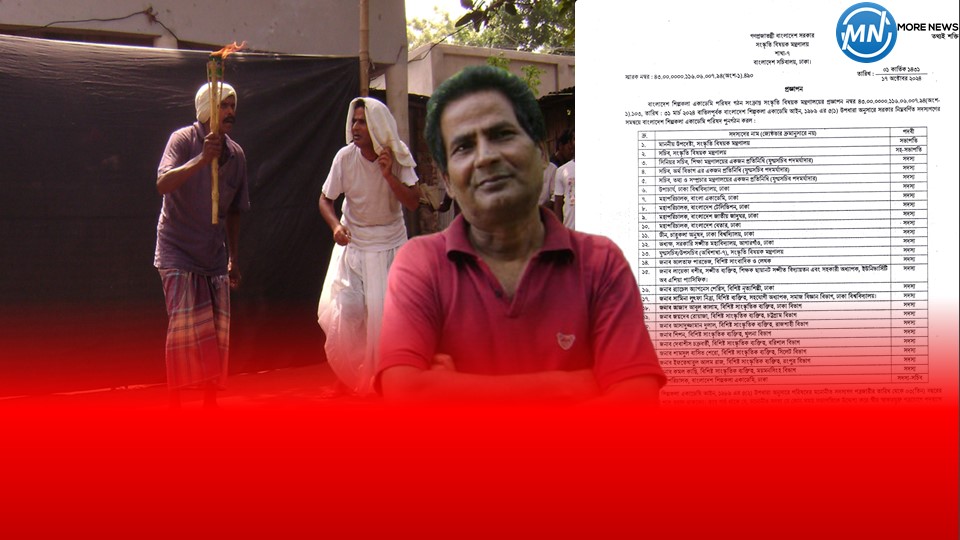Ashwini Kumar Vrat and “Vrater Bhaat” Nehal Ahmed


Published: 11:10 19 October 2025
There is a region in Bangladesh where religious beliefs, social customs and humanity have come together to give birth to a unique culture. One of the brightest examples of that culture is the “Ashwini Kumar Vrat”, which has been an integral part of the lives of women in Chittagong and its surrounding areas for centuries.
The Ashwini Kumars are known as the divine doctors in Hindu mythology. They are believed to destroy diseases and grant blessings of longevity. Ashwini Kumar or Ashwini Devata is the twin physician of the gods, the children of Surya Dev. They have been worshipped since the time of the Rigveda. This vrat originated due to their importance as the divine doctors. Women observe this vrat for the health of the family, the longevity of their husbands and the well-being of their children. It is not just a form of worship – but a spiritual practice that is deeply connected to domestic life.
The tradition of observing this vow is still alive in the regions of Chittagong, Cox's Bazar, Feni and Noakhali. On an auspicious day in autumn or winter, women eat a vegetarian diet, light lamps and pray to the deity. The goal of their vow is a disease-free life and peace in the family.
The most significant part of this vow is the "fasting rice". This rice, made from simple ingredients, contains rice, lentils, vegetables, fried potatoes, coconut, bananas, and sometimes sweets or pitha. At the end of the vow, this rice is offered to the deity. Then it is distributed among family, relatives and neighbors as prasad. This "sharing" teaches a social and humane lesson - when food, goodness and blessings spread in the society. Many times, Muslims or people of other religions also receive this prasad, which is a sign of the traditional coexistence of Chittagong.
The atmosphere of this vow is still alive today. Sometimes it is observed very quietly, sometimes very sincerely. A domestic helper, Pompi Das, for example, brings “vrater bhat” to his workplace—knowing that the vrat has not been observed there. He believes that sharing the vrat bhat auspiciously brings good fortune to the house. Hidden within this small act is a deep value of society—devotion, sincerity, and human bond.
Ashwini Kumar Vrat is not just a religious ceremony; it is a symbol of a folk tradition that has brightened the culture of Chittagong over time. This vrat teaches—good fortune is not achieved alone, but has to be shared with everyone. “Vrater bhat” is therefore not just rice, but a taste of a tradition, where faith and love become one.
Most Readed - Literature & Culture
- JB's law department student Mehnaz not included in BJS gazette
- Farewell ceremony of 5th grade students of The Child Learning Homes held in Durgapur
- 56 BGB seizes four ownerless Indian cows at Boda border
- BGB seizes huge quantity of Indian liquor in night operation
- Miscreants attack on rice sheaf banner in Narail - Concern in Hindu-dominated areas
- Fraud in the name of unregistered cooperative in Narail - Allegations against Astha Sangstha
- Gazipur teenager Selim suffers from terminal cancer, desperate plea for help
- EB Chhatra Dal's prayer mahfil for the health of Khaleda Zia
- EB Reform Movement's sit-in program on two demands
- Savar Disabled Woman Hanufa Murder Case: Property Misappropriation Was the Main Motive, Newly Revealed
- The Iranian public has mixed reactions to the death of President Ibrahim Raisi
- Iran's President Ebrahim Raisi and Foreign Minister died in the helicopter crash
- Ibrahim Raisi Killed: Mere Accident or Premeditated Murder?
- in the memory of Ibrahim Raisi, mourning in the country
- 3 KNF members were killed in a joint operation led by the army in Bandarban
- Today is Sheikh Hasina's 44th Homecoming Day
- Urinary Bladder Cancer: Symptoms to watch out for
- Kangana will say goodbye to the world of cinema forever
- High blood pressure 'silent killer' for kidneys
- France supports arrest warrant application against Netanyahu-Hania




